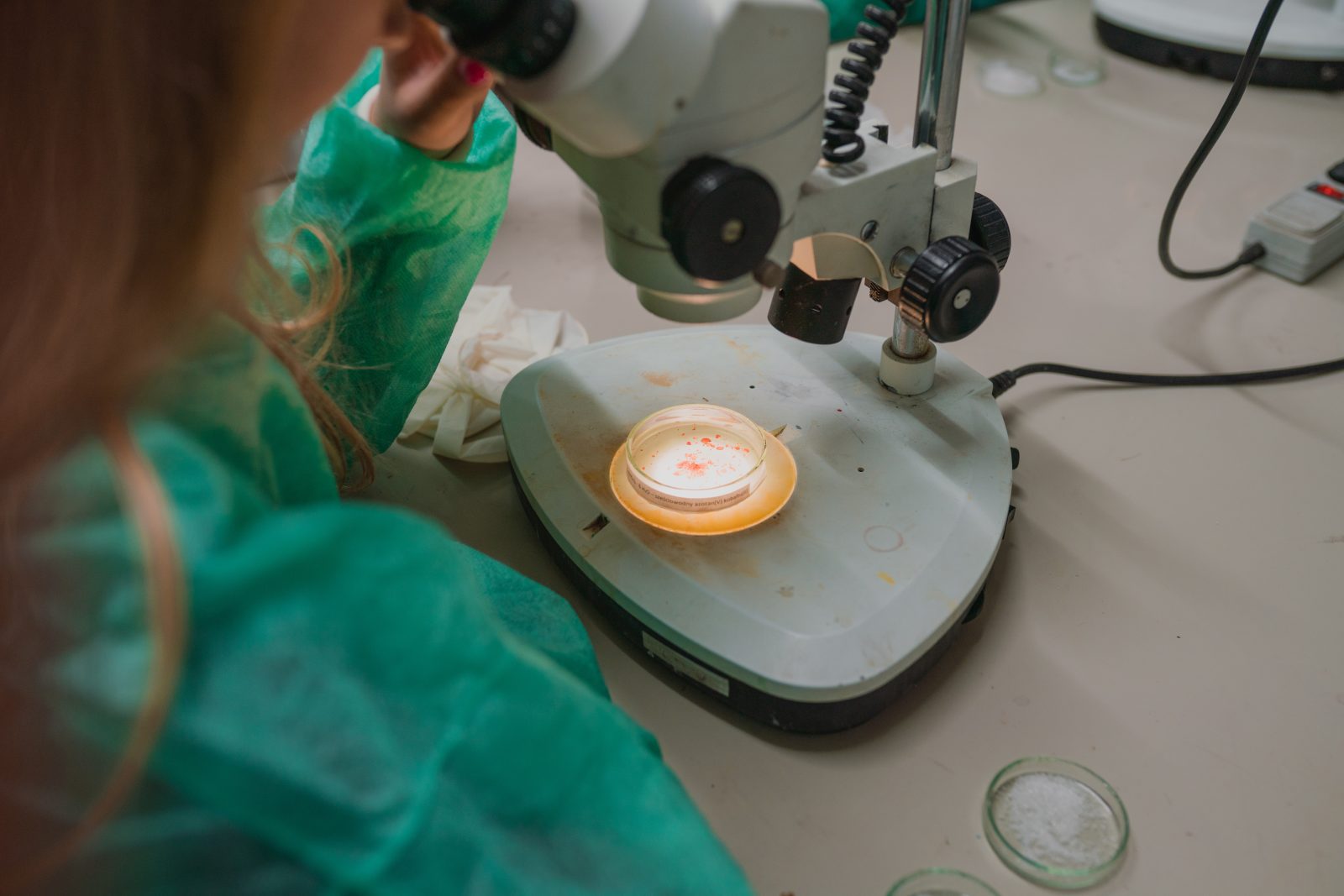
Protein machinery under the control of our researchers
The January issue of Nature Communications published a paper showing how ribosomes (the translational machinery) change their position during the sporulation process in the bacterium Bacillus subtilis. The research was carried out by a team of dr hab. Agata Starosta from the Institute of Biochemistry and Biophysics of the Polish Academy of Sciences in cooperation with scientists from our University’s Faculty of Biotechnology – dr Joanna Hołówka and prof. Jolanta Zakrzewska-Czerwińska.
Researchers have discovered and described how the position of ribosomes, the protein-producing machinery, changes during spore formation in the hayfly bacteria. They also showed what necessary changes must take place in the structure of the cell to form a mature spore.
– B. subtilis bacteria under unfavorable conditions for growth (e.g., nutrient deficiency) produce spores, i.e., survival forms – explains prof. Jolanta Zakrzewska-Czerwińska. – These spores show exceptional resistance to environmental stresses, such as high temperatures, drought, disinfectants or antibiotics.
The research team discovered that ribosomes – the machinery necessary for protein synthesis – are transported in an organized fashion from the mother cell to the sperm at a precise moment. This process is necessary so that, under favorable conditions, spores can transform into active cells capable of growth and division. Without the ribosomes inherited during sporulation, spores are unable to transform into an active form.
– By specifically blocking the process of ribosome translocation into the spore, we will prevent the formation of mature spore forms, and thus exclude the possibility of these bacteria surviving in unfavorable conditions, which is particularly important in the case of pathogenic bacteria – explains our researcher prof. Jolanta Zakrzewska-Czerwińska. – Therefore, this discovery may in the future find application in the development of new strategies to combat bacteria capable of forming spores, such as the closely related pathogenic species Bacillus anthracis, which is related to B. subtilis .
From the research, which appeared in “Nature Communications” shows that in B. subtilis cells, the translation process (and thus the translation of the genetic code into proteins) during spore formation and the translational machinery are temporally and spatially organized. The asymmetric septum can be considered the control center of cell development. And the resulting endospore “inherits” ribosomes from the mother cell.
Nauka w Polsce portal published an article on the study, titled “Jak bakteria robi przemeblowanie w swojej komórce” https://naukawpolsce.pl/aktualnosci/news%2C106088%2Cjak-bakteria-robi-przemeblowanie-w-swojej-komorce.html
The article titled “Ribosomes translocation into the spore of Bacillus subtilis is highly organised and requires peptidoglycan rearrangements” in Nature Communications can be found here: https://www.nature.com/articles/s41467-024-55196-9
Complied by Kg
Date of publication: 9.01.2025.
Added by: M.J.



